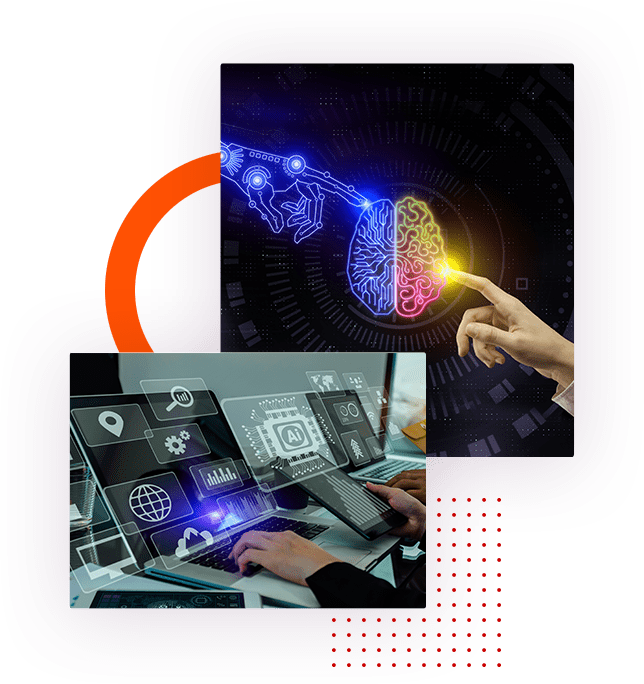Benefits of AI Model Deployment and Integration
As businesses globally recognize the transformative power of Artificial Intelligence (AI), the importance of effective AI model deployment and integration cannot be overstated. The seamless integration of AI models into existing workflows and the deployment of these models across various applications offer a myriad of benefits, shaping the future of industries. Let’s delve into the key advantages of AI model deployment and integration along with Machine Learning Company
Enhanced Decision-Making: AI models, when integrated into decision-making processes, bring a data-driven approach. They analyze vast datasets, identify patterns, and provide actionable insights, enabling businesses to make informed and strategic decisions. This enhanced decision-making capability can significantly impact efficiency and outcomes.
Operational Efficiency and Automation: The integration of AI models automates repetitive tasks, reducing manual efforts and increasing operational efficiency. Whether it’s automating customer interactions, processing large volumes of data, or streamlining complex workflows, AI integration enhances overall operational productivity.
Cost Savings: Automation and improved efficiency directly translate into cost savings. By automating routine tasks and optimizing processes, businesses can cut down on labor costs and resource allocation. AI model deployment ensures that resources are utilized more effectively, contributing to a more cost-effective operation.
Customization and Personalization: Integrating AI models allows businesses to customize products, services, and user experiences based on individual preferences and behaviors. Personalization, driven by AI, enhances customer satisfaction, engagement, and loyalty, leading to a competitive edge in the market.
Improved Customer Experiences: AI-powered applications, when seamlessly integrated, can enhance customer experiences across various touchpoints. From chatbots providing instant customer support to personalized recommendations, businesses can create more meaningful interactions, fostering stronger connections with their audience.
Predictive Analytics for Better Planning: AI models excel in predictive analytics, forecasting future trends and outcomes based on historical data. Integration of predictive models allows businesses to anticipate market changes, customer behaviors, and operational needs, enabling proactive planning and strategy development.
Other Benefits of AI Model
Scalability and Flexibility: Deploying AI models in a scalable manner ensures adaptability to changing business requirements. Whether it’s handling increased data volumes or expanding to new markets, the flexibility of AI integration allows businesses to scale operations without compromising efficiency.
Fraud Detection and Security Enhancement: AI models are adept at identifying unusual patterns and anomalies in data, making them invaluable for fraud detection and enhancing security measures. Integration of AI in cybersecurity protocols ensures a proactive defense against potential threats and vulnerabilities.
Continuous Learning and Optimization: Deployed AI models can continuously learn and adapt to new data, improving their accuracy and performance over time. This iterative learning process ensures that models remain relevant and effective, contributing to long-term success.
Competitive Advantage: Businesses that successfully deploy and integrate AI models gain a competitive advantage in their respective industries. From staying ahead of market trends to offering innovative solutions, AI integration positions businesses as leaders in the age of digital transformation.




